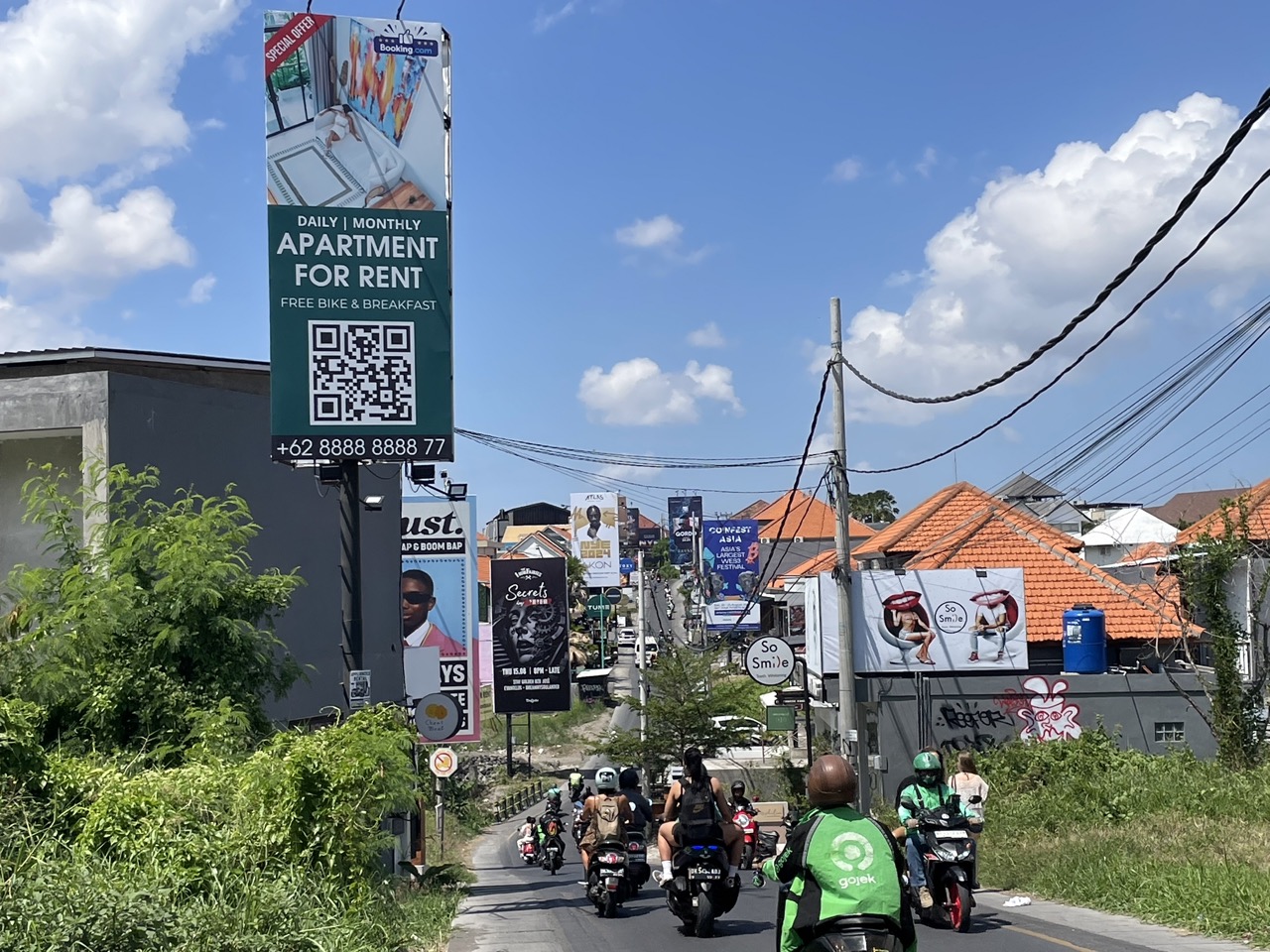
Bali is currently undergoing a massive transformation. If you’ve had the chance to fly over the island or simply check satellite images, you’ll notice that the southern part has evolved into a unique urban conglomerate, with its center located in Denpasar.
This development shows no signs of slowing down. Alongside the construction of new villas to accommodate the growing number of tourists and digital nomads, hundreds of new venues have opened, reflecting the island’s incredible vibrancy. These include not only restaurants, clubs, and yoga studios but also art galleries, wellness centers, shops, and even shopping malls. The consequences of this unprecedented growth are evident in the challenges faced by local institutions, such as traffic congestion, waste management, and water scarcity. However, the impact isn’t entirely negative. A colorful and diverse array of new events has emerged across the island.
Bali has never been richer in its cultural and recreational offerings. The trend continues to grow, with hundreds of events taking place each week, from Ubud down to Uluwatu. The variety is vast, catering to all tastes: from captivating shows—comedy, dance, musical, or theatrical—to multi-day festivals. There are also international conferences, world-class sports competitions, delightful food experiences, and bustling markets. The island’s renowned clubbing and spiritual scenes have also expanded significantly.
However, this surge in activity has not yet reached its full potential, making it challenging for both tourists and residents to fully enjoy everything Bali has to offer. Keeping track of all the events and venues is nearly impossible, even for the most dedicated individuals. The problem lies in the traditional methods of event promotion, which are limiting the island’s true potential and keeping people unaware of Bali’s vibrant event scene.
The promotional tools available to event organizers are limited, often inaccessible due to high costs, and ineffective. From the audience’s perspective, the event scene appears scattered, with multiple media outlets involved, and is dominated by a few main venues.
The two most important tools for event promoters are billboards and social media ads (especially Instagram). Both have significant drawbacks.
Billboards can be effective but are prohibitively expensive. For example, renting a billboard on the famous Canggu shortcut can cost up to 70 million IDR, unless you happen to connect with the billboard’s actual owner, in which case the price might drop to 50 million IDR. This makes billboard promotion accessible only to a few venues, usually the island’s main clubs, overshadowing all others. Furthermore, billboards are only seen for a few seconds, and their effectiveness is often limited. Additionally, billboards contribute to visual pollution, detracting from the natural beauty of the streets, which are increasingly resembling promotional brochures.
Social media ads can be more affordable than billboards, but their conversion rates and effectiveness are low. One reason is the high level of competition in certain markets, which continues to rise as more venues emerge. Another reason is user behavior; people are now adept at ignoring ads and focusing on content from friends or followed profiles. Only highly engaging ads have a chance of success, and even then, they must first compete with other ads for visibility.
Fortunately, a new platform has recently entered Bali’s event scene, promising to revolutionize the way events are promoted by venues and discovered by audiences. This platform is called Rimba Events — an online platform accessible at https://rimba.events/ and dedicated exclusively to events in Bali.
Rimba Events allows users to find any event on the island in no time, thanks to its useful filters that enable searches based on personal taste, preferred area, or date. Unlike billboards and social media ads, Rimba Events has limitless space—both physical and digital—allowing it to accommodate all events in Bali. The best part? There’s no cost for venues to list their events. It’s completely free. Anyone can easily submit an event, and it will be published within a day.
Another key difference compared to other promotional tools is the user’s intent. People visit Rimba Events with a clear intention to explore the event scene, dedicating time to find something interesting without being bombarded by unrelated content or ads. This distraction-free browsing experience allows users to focus and relax, finding the events they like, checking all the details, and even saving them for future reference.
The free-listing approach ensures that all venues on the island can participate, creating a comprehensive and satisfying event offering for users. The platform’s business model is based on the sale of additional features, such as boosting event visibility and providing direct conversion options through ticket or contact/reservation links.
The uniqueness of the Rimba Events project unlocks the full potential of Bali’s event scene, allowing both tourists and residents to enjoy its richness and variety fully. Ultimately, all stakeholders benefit: users can easily find events they like, venues can promote their events more effectively and affordably, and the platform profits from its services.